Quoniam
-
Ships in 2 to 3 weeks
Details
Description
SKU: AN.AMP-0684P
Composed by Johann Adolf Hasse. Edited by Marin Banner. Alliance Music Publications #AMP 0684P. Published by Alliance Music Publications (AN.AMP-0684P).Hasse/Banner.
Johann Adolf Hasse (born in Bergedorf, Germany, on March 25, 1699, and died in Venice on December 16, 1783) spent the majority of his mature life as a composer alternating frequently between Dresden, Venice, and Vienna. Highly respected in his own time by no less than Handel in London, Rousseau in Paris, and Galuppi in Venice, Hasse is known for his many operas in the Italian opera seria style. However, his creative powers as a composer were extended to include many Italian oratorios and cantatas, masses and requiems, individual mass movements, smaller sacred choral works, solo motets, instrumental concerti, and chamber music.
Quoniam, from Hasse's Mass in d minor, is scored for two oboes, two horns in D, two trumpets in D, timpani, two violins, viola, cello, bass, and SATB chorus.
This edition of Hasse's Quoniam is based upon a hand-copied score located in the Staatsbibliothek zu Berlin-Preussischer Kulturbesitz, Musikabteilung mit Mendelssohn-Archiv in Berlin, Mus. Ms. 9485. The manuscript is laid out over twelve pages, twelve staves per page. The English translation of the Latin text is as follows: For you alone are holy, you alone are Lord, you alone are the highest, Jesus Christ. With the Holy Spirit in the glory of God the Father, Amen.
In preparing this performing edition, the text (where shown in only one voice in the manuscript) was written out for all vocal parts, with slurs added where two or more notes appeared for a single syllable of text. Soprano, alto, and tenor parts (notated in moveable clefs in the manuscript) were rewritten in treble clefs. The keyboard reduction is based upon the original orchestration.
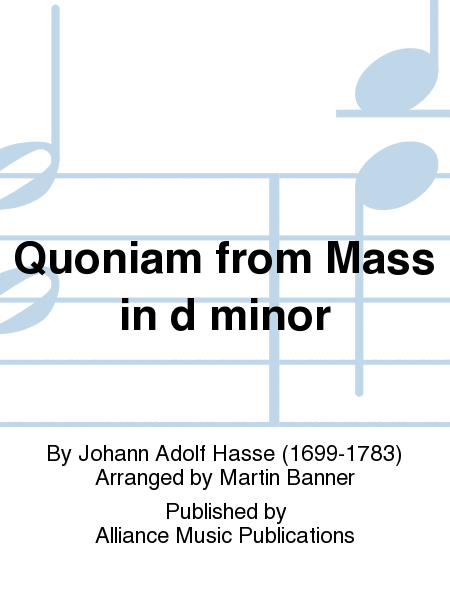
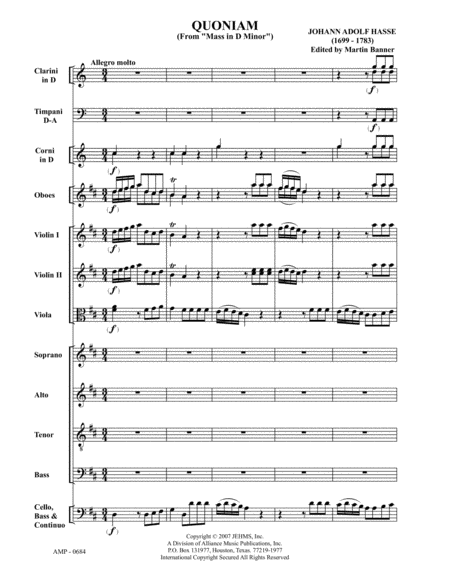
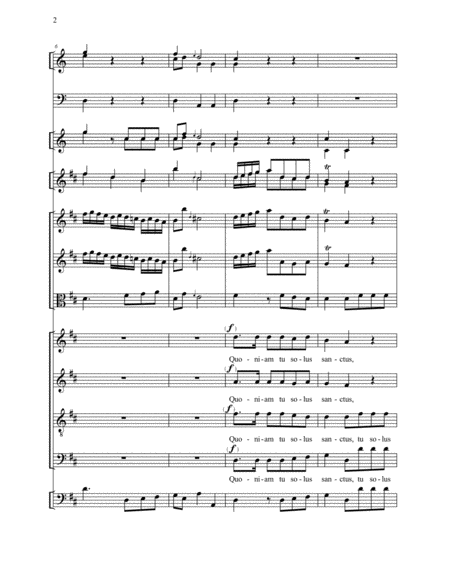
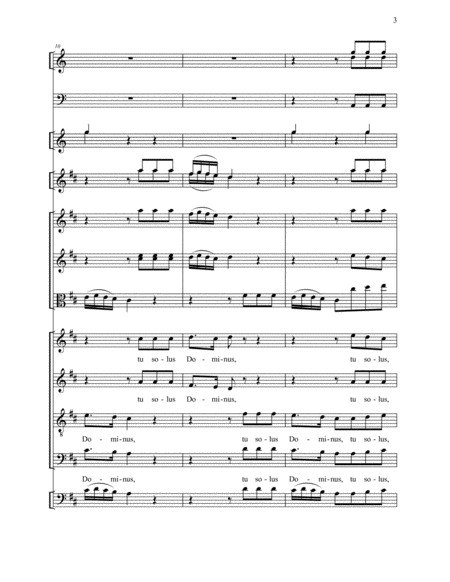
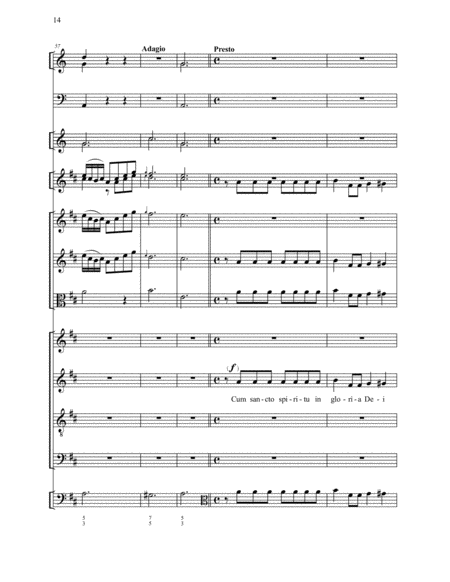
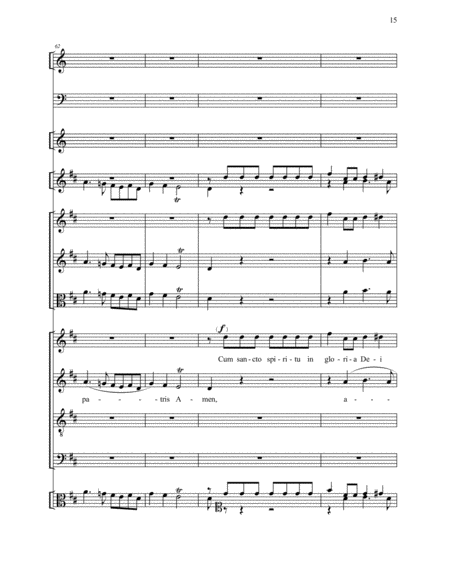
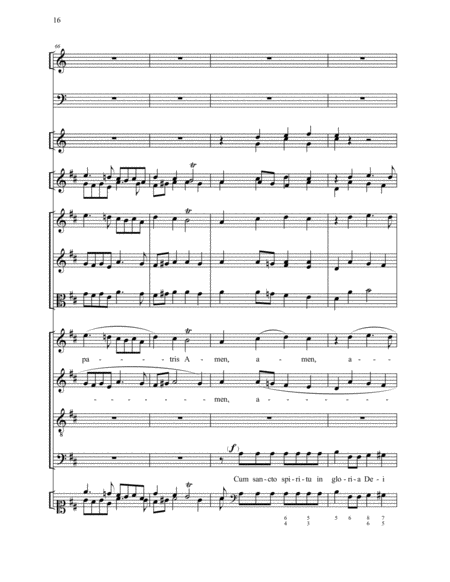
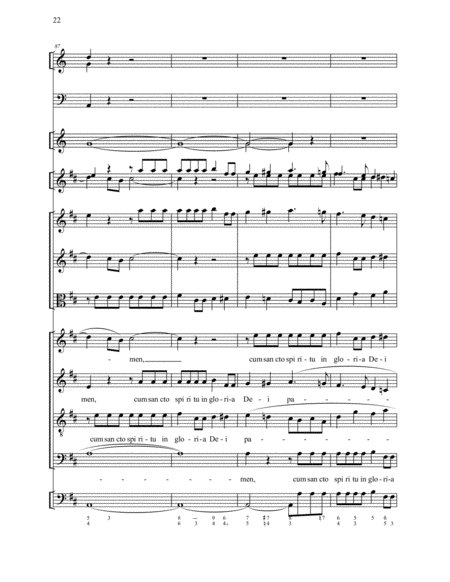
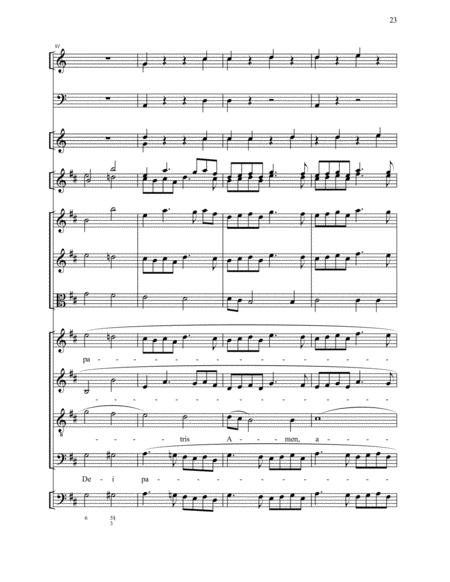
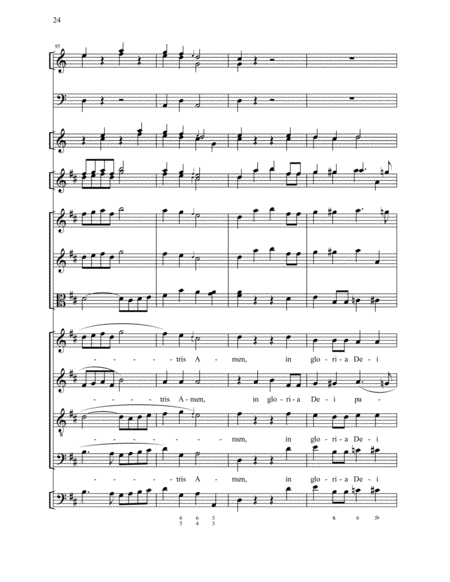
 Share
Share